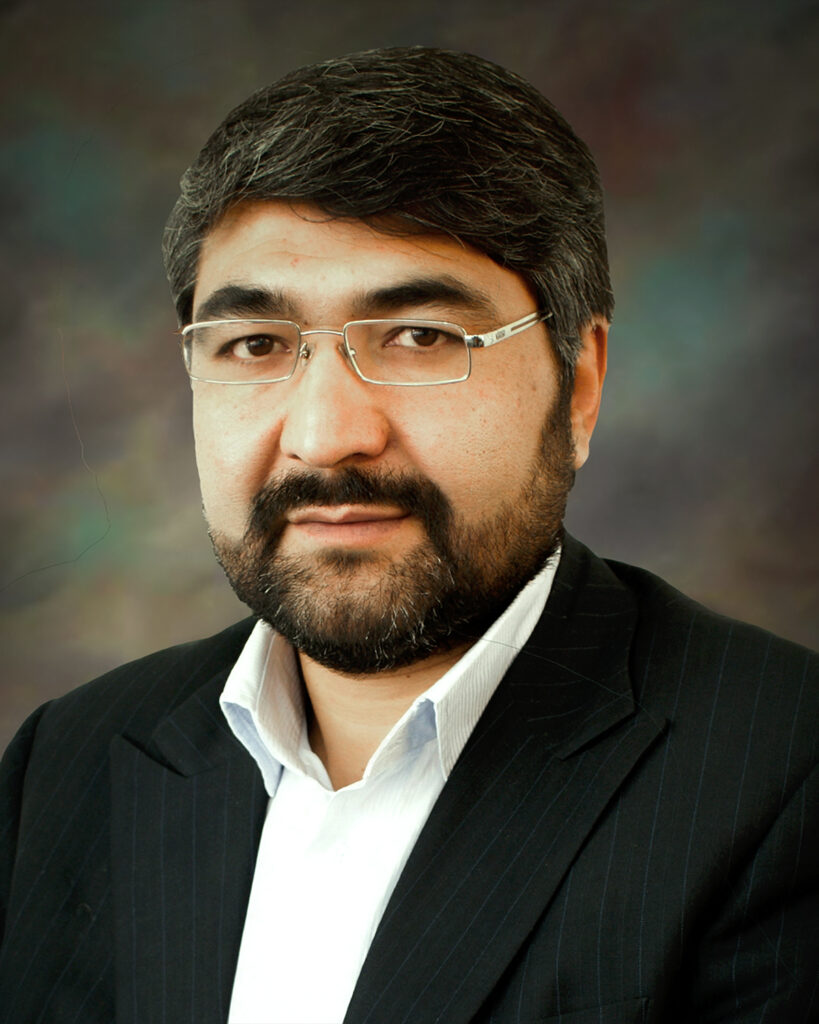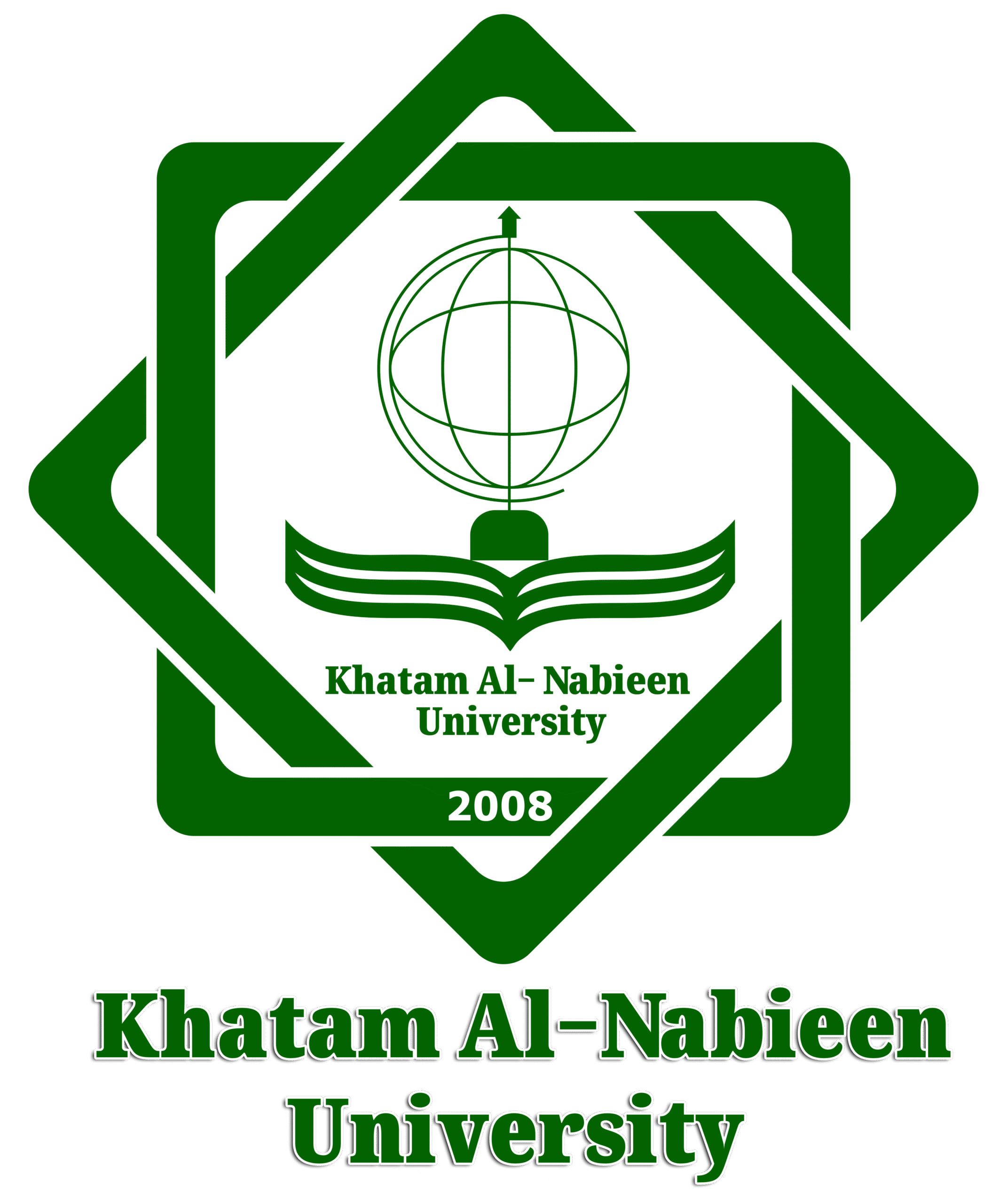University Presidency

Dr. Sayed Abdul Qaium Sajjadi, son of Sayed Hakim, was born in 1969 in the Tamki area of Qarabagh District, Ghazni Province. In 1984, he traveled abroad to continue his education and simultaneously pursued religious and political studies at various levels (bachelor’s, master’s, and PhD) at academic institutions in that country. He earned his PhD in International Relations from Shahid Beheshti University and began teaching and researching at universities in Iran. In 2003, he participated as a representative of migrants in the Constitutional Loya Jirga. From 2005 to 2021, he served as a representative of the people of Ghazni in the House of Representatives. Dr. Sajjadi, in 2007, upon the order of the progressive jurist of the country, Ayatollah al-Uzma Mohseni (RA), and in collaboration with a group of distinguished professors, officially began his academic activities at Khatam Al-Nabieen University (PBUH) and has been serving as the president of the university since its inception. In 2012, he established the Ghazni branch of Khatam Al-Nabieen University (PBUH) in collaboration with Mr. Mohammad Javad Mohseni, and in 2014, he founded the Khatam al-Nabieen (PBUH) Higher Education Institute in Jaghatu District. To date, he has published over thirty scientific articles in national and international journals. He has also authored and compiled more than ten academic books and textbooks. In addition to being the founder of Khatam Al-Nabieen University (PBUH), he serves as a professor and academic staff member, engaged in teaching and research at the university.
Dr. Sayed Abdul Qaium Sajjadi
Educational Background:
- Bachelor of Political Science, Baqir al-Uloom University, Year of Enrollment: 1989, Year of Graduation: 1992;
- Master of Political Science, Baqir al-Uloom University, Year of Enrollment: 1993, Year of Graduation: 1997;
- Ph.D. in International Relations, Shahid Beheshti University: Year of Enrollment: 2001, Year of Graduation: 2005.
Executive Activities:
- Member of the Constitutional Loya Jirga in 2003 and Member of the Dispute Resolution Committee of this Council;
- Member of the Academic Staff at Mofid University, Iran;
- Member of the Academic Staff and President of Khatam al-Nabieen University, Afghanistan;
- Founding Member of the Center for Strategic Studies of Afghanistan;
- Member of the International Affairs Commission of the Wolesi Jirga (Lower House) for two terms;
- Representative of the Wolesi Jirga (National Assembly) in the 15th and 16th terms, representing the honorable people of Ghazni Province;
- Member of the Review Committee for Islamic Culture Curriculum at the Ministry of Higher Education;
- Founder of the Private Noor Ghazni High School (established in 2007 in Ghazni City, which has so far educated over 3,300 students).
Scientific Works and Activities:
15 years of teaching at domestic and international universities in Political Sociology and International Relations, 10 years of experience in higher education leadership as the President of Khatam Al-Nabieen (PBUH) University, Afghanistan, During this period, the following research activities have been conducted:
- Dozens of scientific and research articles on international, regional, foreign policy, diplomacy, Islamic political thought, and political and legal issues;
- Eight published books in the aforementioned fields, some of which are used as textbooks and references in domestic and international universities;
- The book “Political Sociology of Afghanistan,” which has been published three times;
- The book “Afghanistan and Globalization” (a university textbook), selected at the Mahmud Tarzi Scientific Festival held by the Ministry of Foreign Affairs of Afghanistan in 2011;
- The book “Islamic Political Discourse and Globalization in Post-Taliban Afghanistan” (selected at the Balkh Book Festival in Iran in 2013);
- The book “Diplomacy and Political Conduct in Islam” (taught at universities in Iran and Afghanistan and used by professors and students);
- The book “Theoretical Foundations of Political Parties in Islam” (selected at the Religious Scholars’ Book Festival in Iran and awarded the first prize in 2005);
- The book “Parliament, Legislation, Oversight, and Representation,” published twice;
- The book “Methods for Deepening Political Thought in Religious Sources”;
- The book “Afghanistan’s Foreign Policy from Amir Dost Mohammad Khan to the Modernization Era” (prepared as a university textbook and currently in print);
- The book “Jurisprudential Foundations of Political Parties in Islamic Political Thought” (discussing modern politics, governance, party activities, democracy, and elections from an Islamic perspective).
In recognition of these scientific activities, the author was awarded the prestigious Scientific Medal by former President Hamid Karzai. Additionally, the author has actively participated in numerous international conferences.
- Participation in international scientific conferences and presentation of research papers on political, legal, international, and regional issues, as well as delivering keynote speeches at dozens of international and national conferences, and participating in book reviews and critiques of scholars’ works.
- Ten years of presidency at Khatam al-Nabieen Private University provided the author with valuable experience in educational management and leadership in higher education. Currently, Khatam al-Nabieen University has over 5,000 students enrolled in 11 academic programs at the bachelor’s and master’s levels. In the first quality assurance evaluation conducted by the Ministry of Higher Education, the university ranked second after the American University, securing the top position among Afghan universities. To date, the university has graduated over 5,000 bachelor’s students and approximately 100 master’s students in fields such as Criminal Law and Criminology, International Law, International Relations, Political Science, Economics and Management, Computer Science, Engineering, Medical Technology, and Quranic and Hadith Studies.
In the Field of Higher Education:
- Leadership and administration of Khatam Al-Nabieen (PBUH) Private University for ten years since its establishment;
- Development of curricula and syllabi in accordance with regional and international standards;
- Participation in the review and revision of Islamic Culture curriculum at the Ministry of Higher Education;
- Involvement in various scientific and advisory programs of the Ministry of Higher Education;
- Preparation of a proposal for the reconstruction and modernization of the Ministry of Higher Education in line with contemporary needs and national requirements;
- Teaching courses in Political Sociology, Diplomacy, International Relations, Research Methods, Politics and Governance, Islam and Democracy, and Foreign Policy in both theoretical and applied contexts;
- Development of textbooks and academic resources for Political Science and International Relations programs;
- Organization of seminars on the opportunities and challenges of higher education in Afghanistan.

